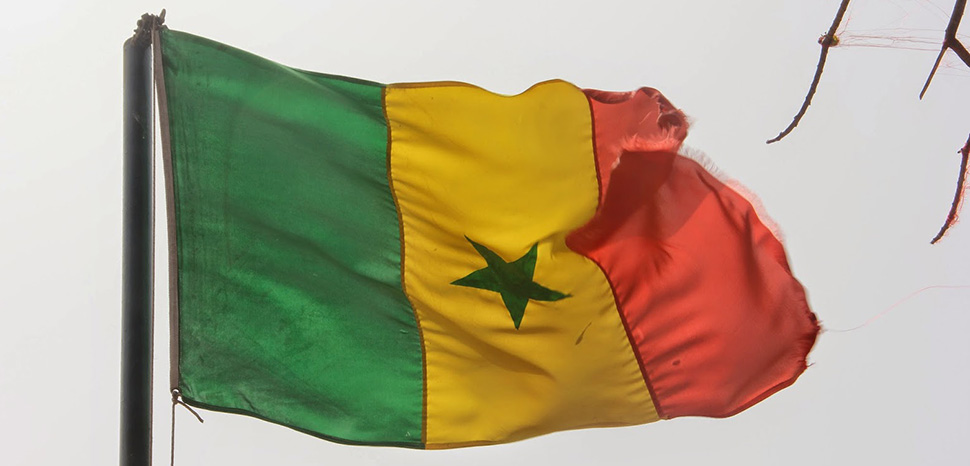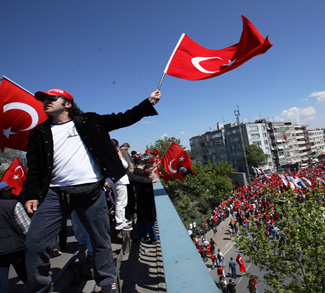In a stunning turn of events, the anti-establishment opposition candidate Bassirou Diomaye Faye is set to become the Senegalese president following the election results of 24 March. Indeed, despite the challenges leading up to the vote, including protests, a postponed election date, and concerns about the integrity of democratic institutions, the country is poised for a peaceful transition of power.
The ruling coalition’s candidate, President Macky Sall, has already congratulated Faye on his apparent victory, suggesting that Senegal is likely to experience another smooth handover of power, maintaining its reputation for democratic stability in the region. Beyond its own borders, the country’s status as a beacon of stability is paramount for the whole of West Africa.
Deemed as one of the most controversial candidates on the ballot, 44-year-old Faye was still behind bars less than two weeks ago, awaiting trial for accusations that included insults against a magistrate. After Ousmane Sonko – one of Faye’s allies – was sidelined from the election scene, the latter was presented as a plan B.
Prominent in Faye’s policy platform is the planned withdrawal of the CFA Franc, a currency widely perceived as colonial. This represents a further move toward a full dissociation from the country’s former ties with France, as Faye argues that the currency benefits the former colonial power more than the Senegalese people. Beyond that, Faye is hoping for a regional approach to monetary reform among ECOWAS countries, deeming it unfruitful to “go it alone.” In another noteworthy plan, the Faye administration will seek to renegotiate contracts with large oil and gas companies set to exploit the offshore platforms later this year.
Such “anti-colonial” policies further strengthen Faye’s character as a leader ready to guide a young population through a wind of change. Most people in Dakar interviewed by France 24 stated they were “desperate for change,” as the issue of unemployment remains at the forefront of concerns across the country. Yet Faye’s vision can also be seen as a potential threat to investment inflows. IMF data suggests that oil and gas could boost Senegal’s GDP growth by double digits before 2025. Despite this, Mr. Faye emphasizes the necessity of negotiating gas, oil, fishing, and defense agreements to prioritize the interests of the Senegalese population. He articulates a vision of “sovereignty” and “change” rather than maintaining the status quo, particularly regarding relations with France. Examples from other nations, such as Cote d’Ivoire, show that further emancipation and economic development are not opposites, and that when done properly, can be a powerful strategy for a country’s socio-economic development.
In the smooth transfer of power, Senegal continues its positive track record for African democracy, even after months of political crisis. The Senegalese election serves as a lesson for opposition parties in Africa. Opting to boycott an election in protest rather than actively contesting it may not always yield the desired outcome. Furthermore, it underscores the notion that no individual is indispensable. The ascension of Faye, who emerged from relative obscurity to replace the former opposition candidate Ousmane Sonko at the eleventh hour, exemplifies this reality.
For junta leaders in West Africa, some of whom have already embraced Faye’s victory, this election stands as a stark rebuttal to their seizure of power through force. While Faye may advocate for a departure from the policies of the outgoing administration, he nonetheless subjected himself to the will of the people through democratic means. Unlike Colonel Mamadi Doumbouya of Guinea, Captain Ibrahim Traoré of Burkina Faso, or General Abdourahamane Tiani of Niger, Faye respected the electoral process. In Senegal, transformative change is not achieved through arms. Yet it would be ambitious, perhaps foolish, to suggest that Senegal is “showing the example” to its neighbors. Burkina Faso, Niger, and Mali have their own dynamics that led to juntas taking power, leaving no room for democratic change. In sum, Senegal’s democratic milestone serves as a powerful reminder not to treat sub-regions as uniform geopolitical units.
Faye assumes office during a critical juncture for Senegal. Significant oil and gas ventures are slated to commence production later this year, offering the prospect of economic advancement and attracting attention from both regional and global players. Concurrently, Senegal occupies a delicate position within a region prone to coups. Moreover, the persistent jihadist menace remains evident through regular terrorist apprehensions by Senegalese military forces, which have intensified border patrols in recent years. Stability is a rare and cherished currency in West Africa. If anything, Faye’s election shows that, despite the coups and political disputes in the region over the past three years, change can still come via the ballot box.




